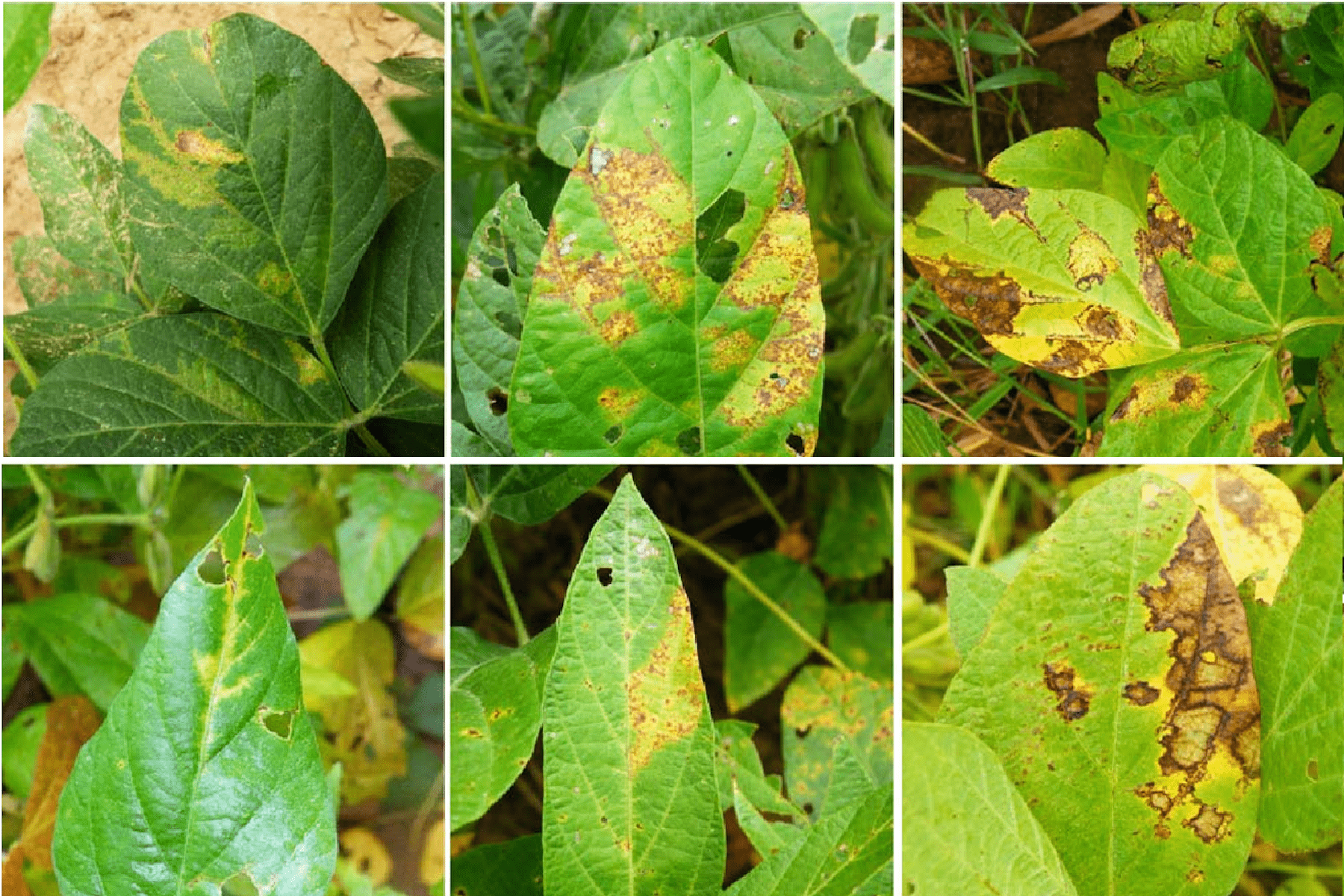Sustainable Control for Soybean Vein Necrosis

The Problem
Vein necrosis is the most widespread soybean virus disease in North America during hot, dry summers. Soybean vein necrosis virus, or SVNV, reduces seed oil content and is seed-borne, affecting international movement of seed. A better understanding of the causes, hosts, and vectors of SVNV will help researchers develop sustainable control strategies for producers.
The Research
Ioannis E. Tzanetakis, a Division of Agriculture plant pathologist, led a team of researchers to study the epidemiology of the virus in order to identify control measures.
Based on the research, they found:
- Kudzu is an SVNV host and may act as a virus source early in the season.
- The virus is not seed-transmissible in Arkansas breeding genotypes. This fact would ease regulatory requirements and allow for the easier movement of Arkansas soybean around the globe.
- The virus, confined to thrips feeding sites in soybean, becomes systemic once plants are also infected with bean pod mottle virus.
- Effective control for beetles — vectors of bean pod mottle virus — and thrips — vectors for SVNV — may minimize the impact of both viruses. This potential is under study.
- Transmission of SVNV was reduced by 70 percent after using protein peptides that block virus acquisition by its vectors. Implementing this strategy in the field can significantly lower the impact of the disease.
The Bottom Line
Research to understand the epidemiology of soybean vein necrosis virus has allowed researchers to identify steps producers can adopt for sustainable control measures.
Funding was provided by the Arkansas State Plant Board, United Soybean Board, NSF EPSCoR and the University of Arkansas Graduate School.
The Researcher

Ioannis E. Tzanetakis
Professor of Entomology and Plant Pathology since 2008.
Tzanetakis earned his bachelor’s and master’s degrees in soil science and agricultural chemistry from the Agricultural University of Athens, and his Ph.D. in molecular and cellular biology from Oregon State University. Research interests include virology, plant virus epidemiology and virus-vector interactions, and molecular biology and epidemiology of emaraviruses.
»
